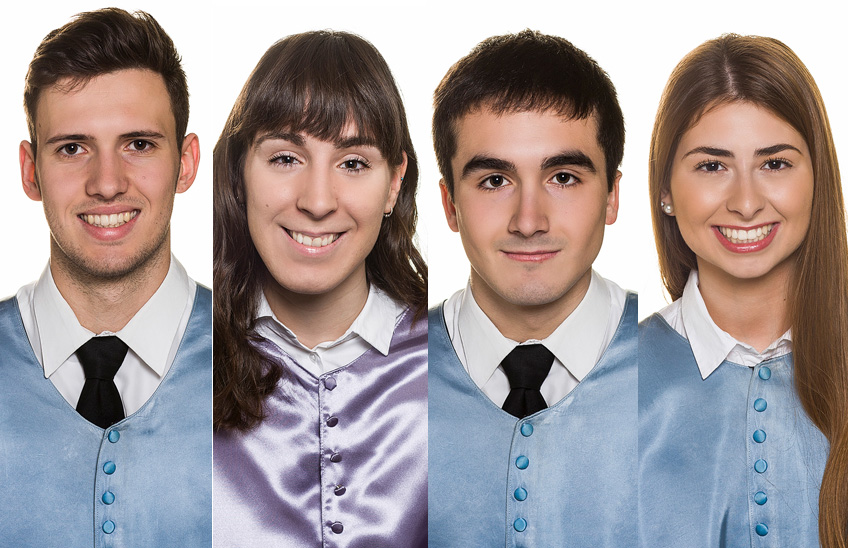Three graduates from the University of Navarra, among the top 100 in the world spanish psychology residency program
A total of 4 graduates from Navarra have obtained one of the 204 vacancies announced by the Ministry of Health.

PhotoManuelCastells/Pablo Zapata Sada, Edurne Iriarte Gurbindo, Victor Eugenio Dachary Pérez, and Blanca Sánchez-Ostiz Martínez.
22 | 02 | 2022
Three graduates of the School from Education and Psychology of the University of Navarra have obtained a place among the first 100 places in the Internal Resident Psychologist exam (spanish psychology residency program). Pablo Zapata Sada, a native of Pamplona, has obtained the position issue 13. He is followed by Edurne Iriarte Gurbindo, also from Navarre, with issue 42, and Victor Eugenio Dachary Pérez, in 96th place. In addition, his colleague, Blanca Sánchez-Ostiz Martínez, has managed to obtain one of the 204 places available.
"Taking out place during the preparation is always in my head and after so many hours of study and preparation I knew that I had a chance that it would happen and so it has,'' he declares. The psychologist, who belongs to the first promotion of Degree in Psychology, explains that he has been preparing for four years and that, after going through many phases, he has achieved his goal thanks to the support of his closest circle: "You see that many people advance and you are still "the one who is with the spanish psychology residency program ". But with the support of the people who love me (family, girlfriend, friends, compis pires ...) and perseverance in the end I have been able to continue and achieve it".
Zapata is grateful to the University of Navarra "for having been able to have a space at Library Services, with his own table together with the rest of his colleagues spanish psychology residency program", which has helped him to concentrate better and optimise his studies. As for his near future, Zapata is still not sure where to go, "I have to take a good look at the vacancies and what each hospital has to offer," he adds.
More than 4000 people have been invited to apply for one of the 204 places. Elkin Luis, psychologist and professor at School of Education and Psychology, recognises that " spanish psychology residency program is an excellent scenario for training for people who vocationally work hard to obtain a place, and who are rewarded after so many hours of training -most of them alone-". He also calls those who have not managed to obtain it "model of perseverance" and adds: "This makes even more sense at a time when there is status health, specifically the maintenance and deterioration of the mental health of many people. We are faced with a status that justifies the incorporation of psychologists into primary and specialised care centres".




